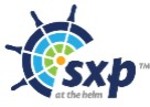Description

HacknPlan

Tracked for Basecamp
Comprehensive Overview: HacknPlan vs Tracked for Basecamp
HacknPlan and Tracked for Basecamp are both project management tools, each with a distinct focus and set of features tailored to different target markets and use cases. Here's a comprehensive overview of each:
HacknPlan
a) Primary Functions and Target Markets:
- Primary Functions: HacknPlan is a project management and development tool primarily designed for video game development. It integrates game design documentation with task management, offering specialized features such as game design documents, task boards, Kanban boards, issue tracking, and resource allocation.
- Target Markets: It's mainly targeted at game developers, small indie game studios, and larger game development teams who need a dedicated tool for managing the intricate processes of game creation.
b) Market Share and User Base:
- Market Share: HacknPlan serves a niche market within the broader project management space, focusing specifically on game development. This specialization means it holds a smaller overall market share compared to more general project management tools.
- User Base: The user base consists mainly of game developers and companies involved in game creation, ranging from indie developers to larger studios. Its adoption is growing in these sectors due to the increasing demand for tailored project management solutions in game development.
c) Key Differentiating Factors:
- Specialized for Game Development: Unlike generic tools, HacknPlan offers features like game design documentation and task categorization specific to game development.
- Integration with Game Design Tools: It often integrates with game design and development software, bridging the gap between design and development processes.
- Community and Resource Focus: HacknPlan also focuses on community feedback and resources, offering templates and guides tailored for game development.
Tracked for Basecamp
a) Primary Functions and Target Markets:
- Primary Functions: Tracked for Basecamp is a time tracking extension or add-on specifically for Basecamp, which is a popular project management and team collaboration tool. Tracked focuses on enhancing Basecamp by integrating time tracking features such as logging work hours, tracking project time, and generating reports.
- Target Markets: It targets Basecamp users who need more robust time tracking capabilities, including freelancers, small to medium-sized businesses, and teams using Basecamp for managing projects but requiring additional time management functionality.
b) Market Share and User Base:
- Market Share: Since it functions as an add-on for Basecamp, its market share is tied to Basecamp's user base. Basecamp is a major player in the project management space, so while Tracked itself may have a niche market, it taps into Basecamp's extensive user network.
- User Base: The user base primarily comprises existing Basecamp users who require time tracking features to complement their existing project management processes.
c) Key Differentiating Factors:
- Seamless Integration with Basecamp: Tracked is designed to work hand-in-hand with Basecamp, providing an integrated experience for users already invested in the Basecamp environment.
- Focused on Time Tracking: Unlike Basecamp, which handles various project management aspects, Tracked solely focuses on providing precise and comprehensive time-tracking functionalities.
- User Convenience: Its value lies in enhancing an existing platform by adding a specific feature set rather than operating as a standalone product.
Comparative Analysis
- Sector Focus: HacknPlan is specialized for game development, while Tracked enhances a broad project management platform (Basecamp) with a focus on time tracking.
- User Base: HacknPlan's user base is more niche, centered on game development, whereas Tracked's user base is broader but dependent on Basecamp’s overall market presence.
- Market Approach: HacknPlan provides a complete project management solution, albeit specialized, while Tracked supplements another tool with added functionality.
These products address different needs within the project management landscape, catering to specific industries and user requirements.
Contact Info

Year founded :
2015
Not Available
Not Available
Spain
http://www.linkedin.com/company/hacknplan

Year founded :
Not Available
Not Available
Not Available
Not Available
Not Available
Feature Similarity Breakdown: HacknPlan, Tracked for Basecamp
When comparing HacknPlan, Tracked, and Basecamp, it's important to consider their core functionality, user interfaces, and any unique features that distinguish them from each other. Here's a breakdown:
a) Core Features in Common
-
Project Management:
- All three tools offer robust project management capabilities, allowing teams to organize projects into tasks and assign responsibilities.
-
Task Tracking:
- These tools provide task tracking features, enabling users to monitor the progress of tasks and projects, often with the ability to set deadlines, priorities, and dependencies.
-
Collaboration Tools:
- Each platform supports team collaboration, offering features such as discussion threads, comments, and file sharing to facilitate communication among team members.
-
Time Tracking (specific to Tracked and HacknPlan):
- Tracked and HacknPlan include time tracking features to help users keep track of how much time is spent on tasks or projects, which is crucial for project estimation and billing.
b) User Interface Comparison
-
HacknPlan:
- Designed with game development in mind, HacknPlan's interface is structured around game design concepts and frameworks. It often includes specialized views like game design documents and sprints tailored to development cycles.
-
Tracked:
- Tracked offers a clean and minimalist interface with a strong emphasis on time-tracking and reporting, presenting users with dashboards and analytics that allow for easy monitoring of billable hours and project timelines.
-
Basecamp:
- Basecamp has a straightforward, user-friendly interface that emphasizes simplicity and ease of use. It organizes projects into easily navigable sections like "To-Dos," "Message Board," and "Docs & Files," where each is self-contained and accessible.
c) Unique Features
-
HacknPlan:
- Game Design Integration: HacknPlan uniquely caters to game developers by providing integrated design documentation features and linking design elements directly to tasks.
- Sprint Management: Offers specialized sprint and milestone tracking tailored for iterative development processes common in game development.
-
Tracked:
- Robust Time Analytics: Goes beyond basic time-tracking to provide extensive analytics and reporting, helping businesses optimize productivity and project estimates.
- Automatic Time Capture: Features automatic time capture that helps reduce the likelihood of user error in logging hours.
-
Basecamp:
- All-in-One Toolkit: Distinct for being an all-in-one toolkit that not only focuses on project management but also includes team interactions through tools like group chats (Campfires) and automatic check-ins.
- Hill Charts: Provides a unique perspective on project progress with Hill Charts, which help visualize task completion beyond traditional status indicators.
Each tool serves different niches and use cases, with HacknPlan focusing on game development, Tracked on detailed time management and reporting, and Basecamp on comprehensive team collaboration and project management. Understanding these differences can help teams choose the best solution that meets their specific needs.
Features

Resource Management
Collaboration
Reporting and Analytics
Project Management

Time Tracking and Reporting
Customization Options
Task Integration
User-Friendly Interface
Team Collaboration
Best Fit Use Cases: HacknPlan, Tracked for Basecamp
When analyzing project management tools like HacknPlan and Tracked for Basecamp, it's important to consider the specific needs and characteristics of different types of businesses or projects. Here is a breakdown of where each tool might be the best fit:
a) Best Fit Use Cases for HacknPlan:
1. Game Development Studios:
- Specialized Features: HacknPlan is specifically designed for game development teams, providing tools tailored to this industry. This includes support for designing game mechanics, tracking game assets, and managing complex development tasks.
- Asset Management: The tool's ability to manage visual and audio game assets makes it invaluable for teams with a heavy emphasis on multimedia.
- Comprehensive Task Management: Allows intricate breakdown of tasks into components such as design, coding, and testing phases, all of which are common in game development workflows.
2. Small to Medium-Sized Development Teams:
- Agile Approach to Development: HacknPlan integrates game design documentation with agile project management, which is conducive for smaller teams looking to streamline processes without overwhelming complexity.
- Cost-Effectiveness: For indie game developers or startups operating with limited resources, HacknPlan provides essential features without the heftier costs associated with broader project management platforms.
b) Preferred Use Cases for Tracked for Basecamp:
1. Project-Based Agencies:
- Integration with Basecamp: Tracked enhances Basecamp’s project management capabilities with time-tracking functionality, making it suitable for agencies in fields like marketing, advertising, and consulting where billing by hours or project is common.
- Client Reporting: The tool allows for detailed time tracking and billing reports which are essential in client-facing industries.
2. Companies Using Basecamp for General Project Management:
- Enhanced Insights and Accountability: Teams already invested in Basecamp can benefit from Tracked’s ability to offer detailed analytics and insights regarding time spent on different tasks and projects.
- Streamlining Operations: Provides a seamless way to manage team hours and project costs, improving the efficiency of operations, especially for companies already familiar with Basecamp’s interface.
d) Industry Verticals and Company Sizes:
HacknPlan:
- Industry Verticals: Primarily targets sectors within the gaming industry, from indie developers to established studios. This is a niche tool serving a specialized market.
- Company Size: Predominantly benefits smaller to medium-sized teams that require specialized features for gaming project management, although larger studios can use it alongside other tools for specific stages of development.
Tracked for Basecamp:
- Industry Verticals: Offers versatility across various industries, including creative and professional services where project timelines and hours need meticulous tracking. Ideal for sectors that already rely heavily on Basecamp for projects.
- Company Size: Scales well from small businesses to larger enterprises that use Basecamp and need enhanced functionality for time tracking and project billing. It complements teams looking to streamline operations while leveraging existing infrastructures.
In summary, HacknPlan is best suited for the game development industry due to its specialized features tailored to game creation, while Tracked for Basecamp is ideal for Basecamp-using companies seeking improved time-tracking capabilities, particularly project-based service agencies. They both cater to industries with distinct needs and therefore fit different organizational structures and sizes.
Pricing

Pricing Not Available

Pricing Not Available
Metrics History
Metrics History
Comparing undefined across companies
Conclusion & Final Verdict: HacknPlan vs Tracked for Basecamp
When comparing HacknPlan and Tracked for Basecamp, it is important to assess factors such as value for money, feature set, user interface, support, and specific user needs.
Conclusion and Final Verdict
a) Considering all factors, which product offers the best overall value?
The best overall value depends on the specific needs of the user:
-
HacknPlan offers exceptional value for game developers and creative teams who require a specialized tool that integrates game design documentation with project management. Its unique structure caters to the intricacies of game development workflows.
-
Tracked for Basecamp presents better value for teams already using Basecamp who need advanced time-tracking capabilities. It leverages Basecamp’s simplicity while enriching it with detailed tracking features without requiring teams to switch platforms.
b) Pros and Cons of Choosing Each Product
HacknPlan Pros:
- Specialization: Tailored for game development, providing features like design documentation, game elements planning, and analytics.
- Integration: Seamless integration with game engines and platforms, enhancing workflow efficiency.
- Cost-Effective: Priced competitively for smaller game development teams needing specialized tools.
HacknPlan Cons:
- Niche use case: Limited value outside game development.
- Learning Curve: May require time to fully utilize all specialized features.
Tracked for Basecamp Pros:
- Integration with Basecamp: Smooth integration allowing teams to track time without leaving Basecamp.
- Ease of Use: User-friendly for teams already accustomed to Basecamp’s interface.
- Comprehensive Reporting: Robust reporting and tracking features that enhance project management efficiency.
Tracked for Basecamp Cons:
- Dependency on Basecamp: Limited functionality for users not using Basecamp or those looking for an independent solution.
- Additional Costs: Requires Basecamp subscription, increasing total costs for small teams.
c) Specific Recommendations for Users Deciding Between HacknPlan vs Tracked for Basecamp
-
Game Developers: Go for HacknPlan if your focus is on game development as it provides features tailored to managing game projects effectively.
-
Basecamp Users With Time-Tracking Needs: Choose Tracked for Basecamp if your team primarily operates within Basecamp and requires enhanced time-tracking and detailed reporting capabilities without switching to another platform.
-
Cost Consideration: Evaluate the total cost including subscriptions and how the tool fits into your current workflow to avoid duplicating functionalities you already have.
-
Trial and User Feedback: Consider utilizing free trials and gather feedback from team members, especially those directly impacted by the project management tools, to make a more informed decision.
Ultimately, the choice between HacknPlan and Tracked for Basecamp hinges on the specific project management needs, team size, and industry of the user.
Add to compare
Add similar companies



